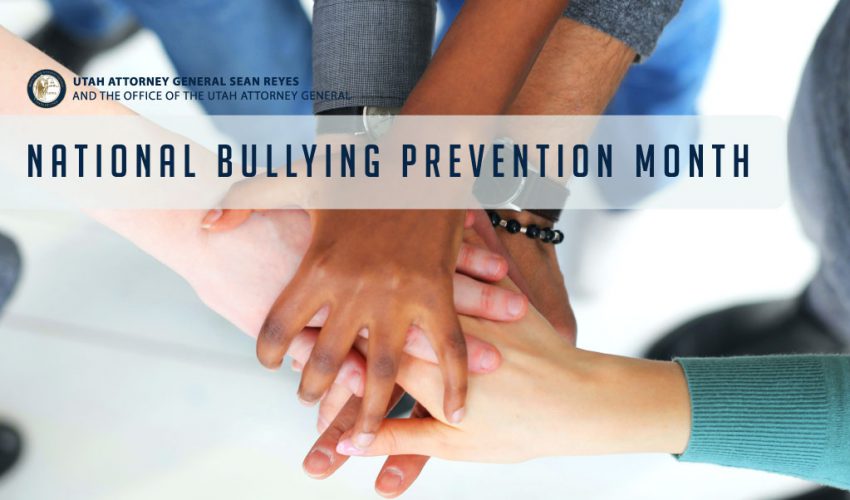October 19, 2020
Everyone knows or has known a bully in their lifetime, and the psychological impact affects generations of people. The internet has empowered online bullies, and cyberbullies have become a significant problem. This is why – as we observe National Bullying Prevention Month – the Utah Attorney General’s office is placing an emphasis on preventing cyberbullying.
With more time spent at home away from school, clubs, or in-person social interactions during the COVID-19 pandemic, children have more screen time, increased susceptibility to cyberbullying, and are more likely to participate in cyberbullying than their peers.
According to the American Adolescent Psychiatric Association, “stress and mental health conditions may be exacerbated by cyberbullying, particularly among those who have experienced emotional abuse.’
Cyberbullying includes mean text messages or emails, rumors spread through social networking platforms, and embarrassing pictures, videos, websites, or fake profiles.
In 2017, 15.5% of students were cyberbullied, and 20.2% were bullied on school property, according to the Center for Disease Control. In addition, the number of individuals who experienced cyberbullying nearly doubled from 2007 to 2016.
Children who experience bullying can have long-lasting detrimental effects on their mental and physical health and are more likely to experience depression and anxiety, decreased academic achievement, substance abuse, and suicide.
This month, we encourage you to learn the signs of bullying, encourage children to stand up for those who are being bullied and teach kindness to one another.
Signs a Child is Being Bullied
- Declining grades and not wanting to attend school
- Feelings of helplessness and decreased self-esteem
- Unexplained injuries
- Changes in eating habits
- Difficulty sleeping or increased nightmares
- Frequent headaches, stomach aches, and frequently feeling sick
- Self-destructive behaviors such as running away from home, self-harm, or talk of suicide
Tips for Preventing Bullying
- Talk to kids about bullying. Talk to your children about what bullying is and that it is totally unacceptable, whether you bully someone in-person or online. Teach them that if they wouldn’t say it to their face, don’t text or post it in any way.
- Keep the communication lines open. Make sure your children know they can come to talk to you. Listen to them and understand their concerns. Get to know their friends and what goes on during school. If they aren’t comfortable sharing everything with you, make sure they know they can talk to another trusted adult and have adequate resources if they are struggling.
- Encourage kids to do what they love. Help your children participate in hobbies, interests, and activities that make them happy. Whether it be a club, choir, or youth group, it’s important children have a chance to have fun and be around other children who share their interests. They can make friends who can support and protect them from being bullied.
- Be an example. Children learn from observing those around them. Make sure you yourself are treating others around you with kindness and respect. Whether you realize it or not, your children are watching how you manage stress and how you treat your friends, colleagues, and family.
Additional Resources

